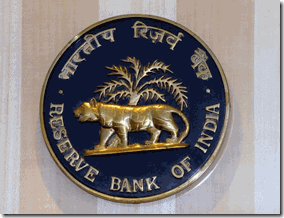RBI Hikes Key Policy Rates
Like Air India pilots, even equity shares seem to have gone on strike against RBI’s move to hike key policy rates by 50 bps today. Benchmark BSE Sensex corrected a whopping 463 points indicating its disliking against the decision.
The only difference being – while the pilots have stalled the work to raise their voice against mismanagement and deteriorating financials of the national carrier; equity analysts feel that surging interest costs would spook growth prospects in the interest rate sensitive sectors such as automobiles, real-estate and banking industries.
On the other hand, RBI says that the calibrated tightening last year was justified by the trend of moderating inflation and consolidated growth. However, the resurgence of inflation in the last quarter of 2010-11 became a matter of concern with spill over of higher input costs into domestic manufactured good.
In its Annual Monetary Policy for 2011-12, the country’s apex banker has raised lending and borrowing rates by 50 bps to 7.25% and 6.25% respectively, with inflation hovering around 9%, much above RBI’s comfort zone. The CRR remained unchanged at 6%.
RBI urges to Hike Fuel Prices
In a rare cautionary statement, RBI called for immediate hike in prices of petro products, even if it adds to inflationary pressures and moderates economic growth.
RBI Governor D.Subbarao was critical about the government’s fiscal rollback plans saying:
“The critical assumption that petroleum and fertilizer subsidies would be capped is bound to be seriously tested at prevailing crude oil prices. Even though an adjustment of domestic retail prices may add to the inflation rate in the short run, the RBI believes that this needs to be done as soon as possible.”
Currently, petrol is undersold by Rs.8.50 per litre despite the fact that it was decontrolled in June last year. Diesel prices are under-priced by a whopping Rs.18 per litre if retail prices are to be brought at international parity. Further, RBI chief feels that the likelihood of oil prices moderating significantly is low.
RBI Raises Savings Deposit Rate to 4%
Last week, we posted on RBI’s intention of deregulating interest rates on saving bank account deposits. Though, rate tinkering on saving deposits was highly probable an event, we didn’t expect an announcement on it as soon as today.
In a surprising move which has been hailed by deposit-holders, RBI decided to hike interest rate on money lying in savings bank account by half a percentage point to 4%, with immediate effect. Eventually, this will lead to slight surge in cost of borrowing for the banks which leverage high on CASA deposits, but benefit deposit-holders.
However, the decision on deregulating saving deposit rates is still being reviewed for a final decision; even as RBI went on to revise the saving bank rate to 4%, to give higher returns to depositors in the wake of high inflation.


[…] Here is a look at the latest changes / updates in the Monetary Policy for 2011-12. […]
bad
bad
Govt./RBI is just cutting the pockets of borrowers under so called measure to control inflation by increasing the interest rate time and again.
I dont understand how increasing interest rates bring down inflation.
With higher cost of borrowing, the prices of all manufactured goods will go up and inflation will go up. With increased prices, consumption will go down which puts pressure on demand which leads to reduced industrial activity.
Already my housing loan EMI is going over my head. Dont know how much the banks will increase my liability.
I hope someone blows some wisdom into the heads of this monkeys.